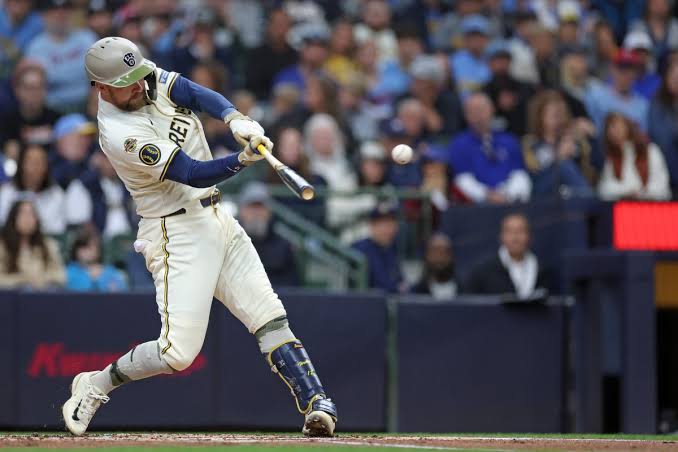Breaking News: The Evolution of Baseball: A Journey Through America’s Favorite Pastime….
In a remarkable celebration of America’s most cherished sport, baseball continues to evolve, captivating fans across generations and borders. Known as “America’s pastime,” the game has seen monumental shifts from its humble origins to the globally celebrated sport it is today. This comprehensive exploration of baseball’s journey highlights its cultural impact, groundbreaking moments, and the future of the sport.
The Humble Beginnings
Baseball’s origins are steeped in folklore, with myths attributing its invention to Abner Doubleday in 1839. However, historians now recognize that baseball evolved from older European bat-and-ball games such as cricket and rounders. As settlers brought these games to North America, they were adapted and refined into the sport we know today.
The first recorded baseball game took place in Hoboken, New Jersey, in 1846. Alexander Cartwright, a key figure in baseball’s early history, is credited with formalizing its rules, laying the foundation for modern gameplay. The National League, established in 1876, marked the beginning of professional baseball, and its influence endures as part of Major League Baseball (MLB).
The Rise of a National Phenomenon
Baseball quickly became a unifying force in a rapidly industrializing America. Immigrants and workers found solace in the sport, attending games in droves and forming community bonds. By the early 20th century, baseball was firmly established as a cultural touchstone.
Players like Ty Cobb, Honus Wagner, and Cy Young dominated this era, earning their places in history as some of the game’s earliest legends. Stadiums like Chicago’s Wrigley Field and New York’s Polo Grounds became iconic gathering spots, drawing fans together to witness the excitement firsthand.
Breaking Barriers: Jackie Robinson’s Legacy
One of baseball’s most significant moments came in 1947 when Jackie Robinson broke the sport’s racial barrier. As the first African American to play in the major leagues, Robinson’s courage and skill paved the way for greater diversity in baseball. His contributions extended far beyond the diamond, serving as a catalyst for the Civil Rights Movement.
Robinson’s journey also highlighted the challenges faced by players of color. Despite facing relentless racism, he proved that talent knows no boundaries. His legacy endures, with MLB commemorating his achievements annually on April 15—Jackie Robinson Day.
The Golden Age of Baseball
The mid-20th century is often referred to as baseball’s “Golden Age.” This period saw the rise of legendary figures such as Babe Ruth, Lou Gehrig, and Joe DiMaggio. Their performances captivated audiences and elevated the sport to unprecedented heights.
The 1920s and 1930s, in particular, were transformative years. Babe Ruth’s power-hitting prowess revolutionized the game, while Gehrig’s perseverance through adversity inspired fans. The sport’s appeal grew with the advent of radio broadcasts, bringing play-by-play action into millions of homes.
Expanding Horizons: Baseball Goes Global
While baseball remained deeply rooted in American culture, its appeal began to spread internationally. Countries like Japan, the Dominican Republic, and Cuba embraced the sport, producing a new generation of stars. Today, international players are an integral part of MLB, showcasing the sport’s global reach.
The World Baseball Classic, launched in 2006, further solidified baseball’s international presence. Featuring teams from around the world, the tournament celebrates the sport’s diversity and fosters cross-cultural connections.
The Impact of Technology
Technology has transformed baseball in myriad ways. The introduction of televised games in the 1950s brought the sport to a broader audience, while advances in analytics have reshaped team strategies.
Data-driven approaches now influence everything from player recruitment to in-game decisions. Metrics like batting average, on-base percentage, and WAR (Wins Above Replacement) have become essential tools for evaluating performance.
Additionally, MLB has embraced instant replay technology, ensuring greater accuracy in officiating. These innovations have enhanced the viewing experience while preserving the sport’s integrity.
Challenges and Controversies
Baseball has faced its share of challenges. The steroid era of the late 1990s and early 2000s raised questions about the sport’s integrity, as revelations of performance-enhancing drug use tarnished some of its greatest achievements.
The pace of play has also come under scrutiny, with critics arguing that games are too slow for modern audiences. To address this, MLB has implemented rule changes aimed at speeding up gameplay, such as pitch clocks and limits on mound visits.
Despite these challenges, baseball remains resilient, adapting to the changing times while honoring its traditions.
The Future of Baseball
As baseball looks ahead, efforts to engage younger audiences are paramount. Grassroots programs like Reviving Baseball in Inner Cities (RBI) aim to increase youth participation, particularly in underserved communities.
The sport’s digital presence is also expanding, with MLB leveraging social media and streaming platforms to connect with fans. By embracing innovation, baseball is ensuring its relevance in an increasingly digital world.
Why Baseball Endures
What sets baseball apart is its timeless appeal. The sport’s slower pace allows for moments of reflection and anticipation, creating a unique blend of strategy and spontaneity. Iconic plays, like Kirk Gibson’s walk-off home run in the 1988 World Series, remain etched in the collective memory of fans.
Baseball is also deeply rooted in tradition. From the singing of the national anthem to the seventh-inning stretch, its rituals foster a sense of continuity and nostalgia. These customs connect fans across generations, preserving the essence of the game.
Conclusion
Baseball’s evolution is a testament to its enduring appeal. From its origins as a local pastime to its status as a global phenomenon, the sport has continuously adapted to reflect societal changes. It has broken barriers, inspired countless individuals, and brought communities together.
As baseball moves forward, it remains a symbol of hope, resilience, and the power of unity. Whether played on a professional field or in a neighborhood park, the game continues to capture the hearts of millions, proving that it truly is more than just a sport—it is a way of life.This in-depth exploration showcases the rich history and evolving nature of baseball, making it a fitting tribute to the sport’s legacy.


